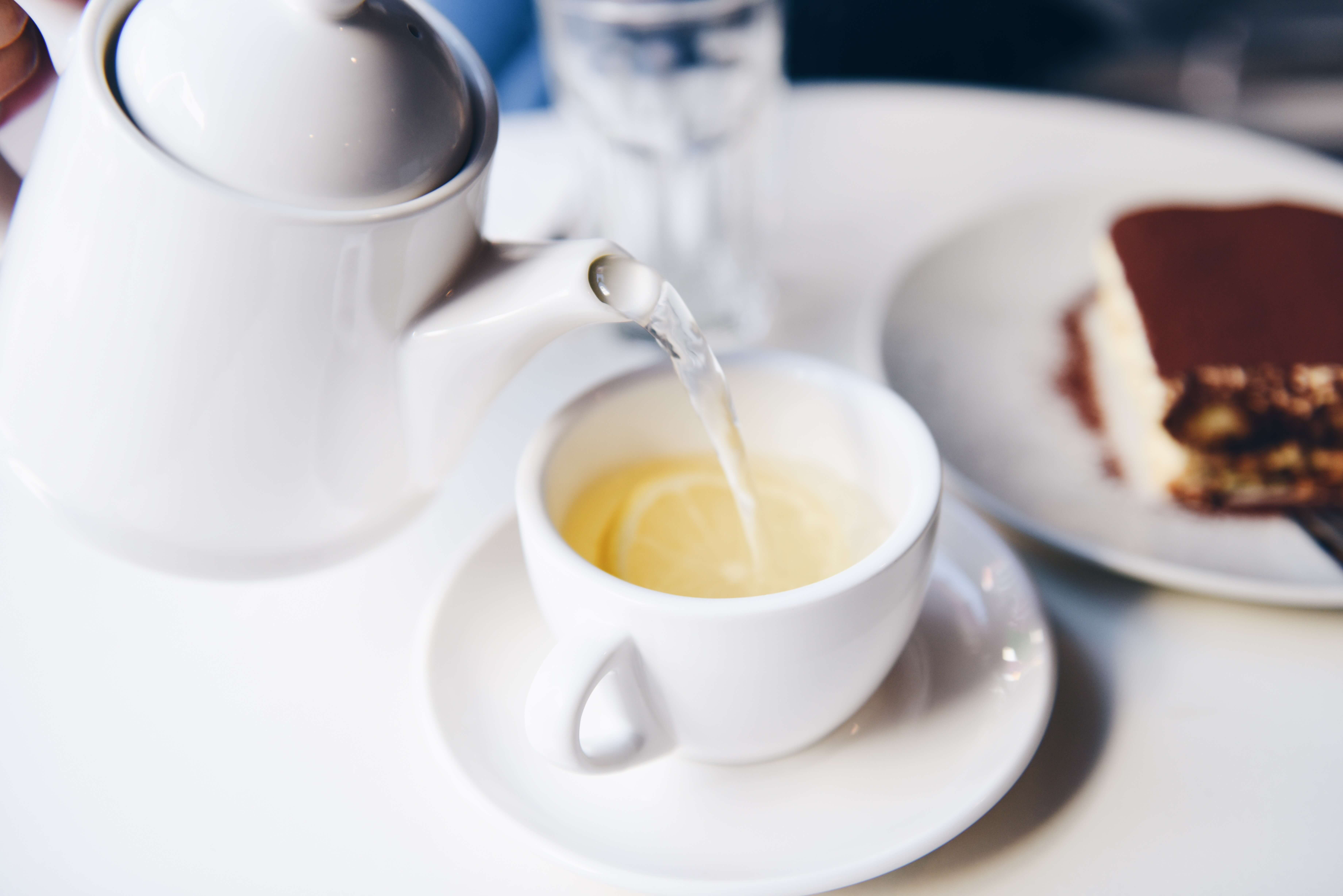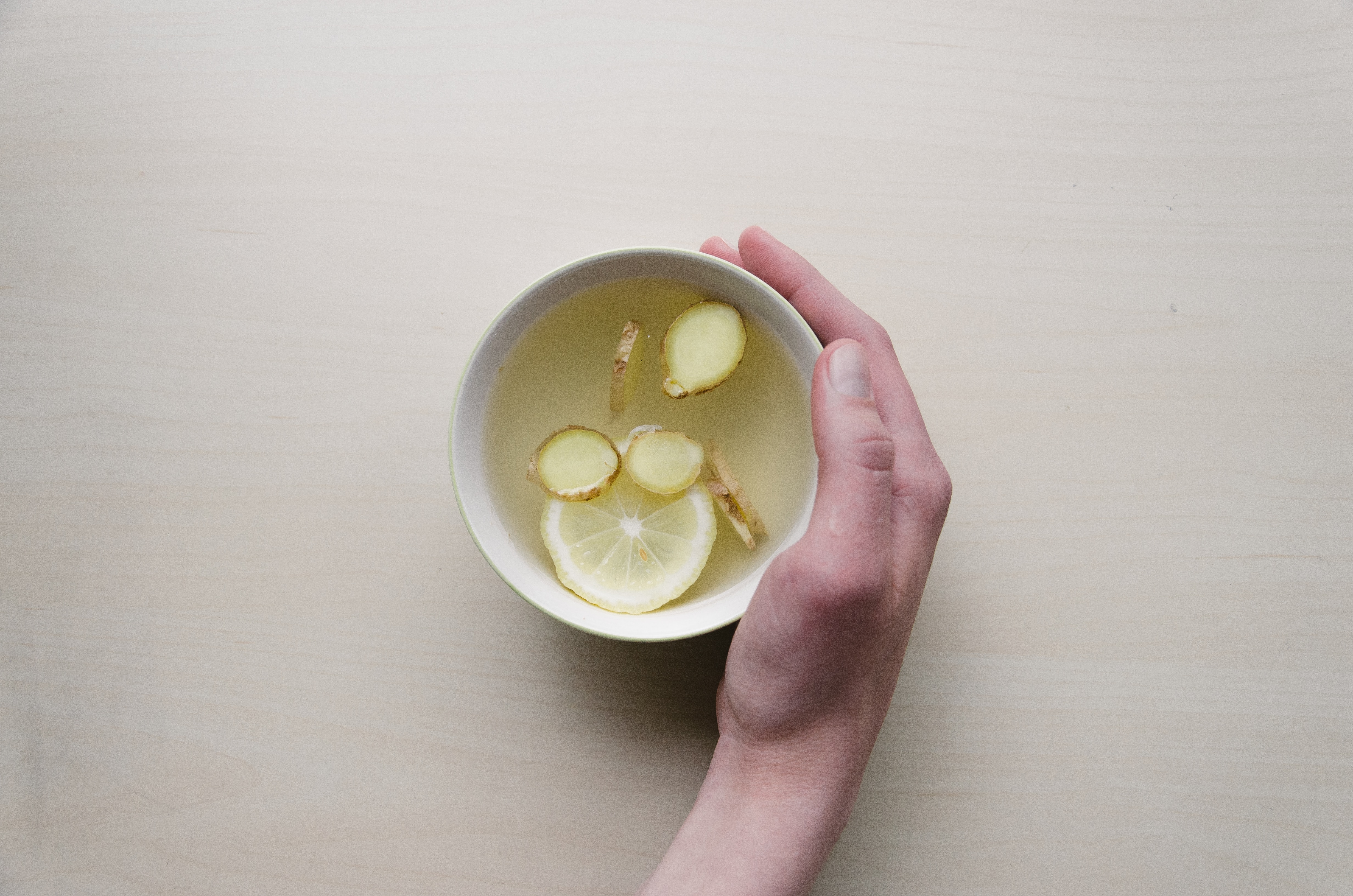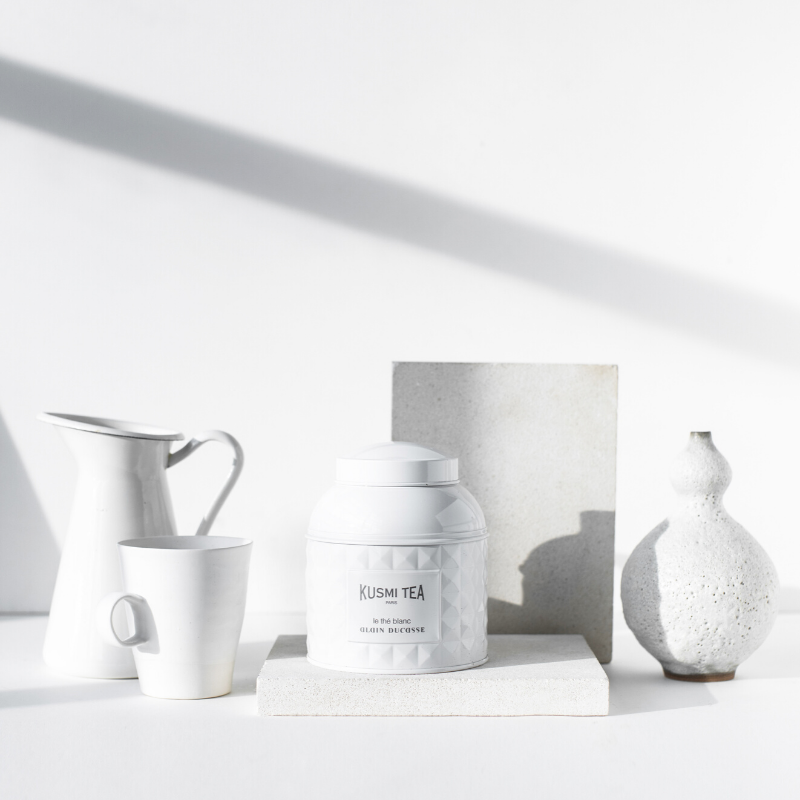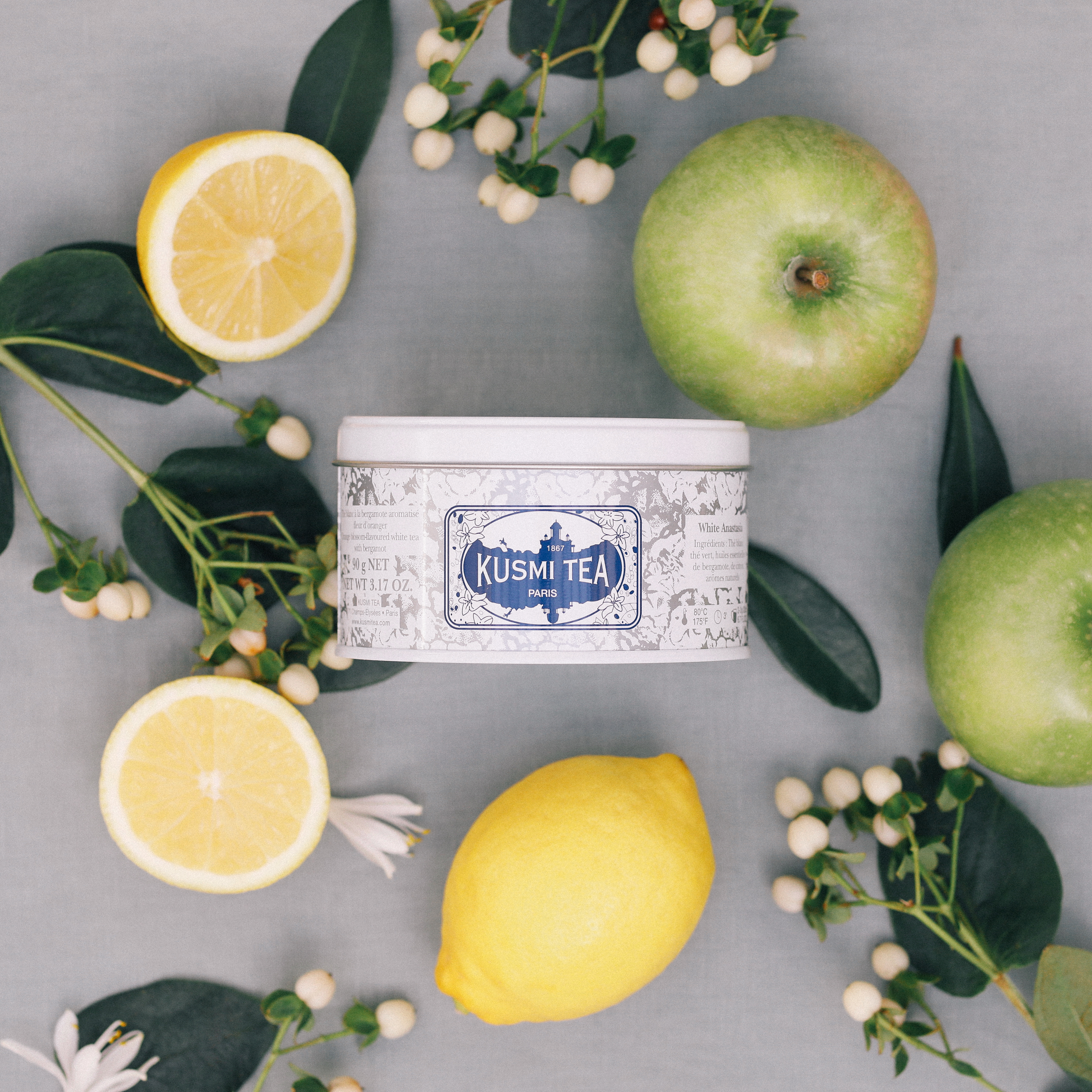Have you heard of white tea? This minimally processed tea is known for its delicate flavor and thirst-quenching properties. White tea is barely oxidized and is filled with unexpected benefits. Read on to find out more about this unique beverage!
White tea, a delicate drink
White tea is the most fragile of all the teas. The young buds and leaves are carefully hand-picked in spring just before they bloom. The tea owes its name to the light, white fuzz covering the leaves just before they are harvested. White tea is processed the least, with just two stages:
- withering, which is traditionally carried out in the open air (or sometimes in a temperature-controlled room).
- firing, which dries the leaves (first in the sun, then in the shade) to prepare and preserve the tea.

A precious tea
If white tea requires less effort and processing, then why is it so rare? Because the two production phrases are carried out gradually, in time with the natural evolution of the leaves. White tea is not roasted or rolled, and handled so little that it only oxidizes on the surface. This is precisely what makes it so rare. The liquor procured from white tea is pale yellow, offering sweet floral notes and a fresh, sophisticated base. The Chinese enjoy it during the summer for its thirst- quenching properties.
Pai Mu Tan, a prestigious vintage
There are two main types of white tea:
- the first is made solely using hand-picked buds.
- the second also includes the first two leaf shoots.
The second category is known as Pai Mu Tan, whose name literally means “white peony,” which says a lot about its delicacy, floral fragrance, and purity. Pai Mu Tan is particularly fresh, sweet, and velvety, boasting flowery, lightly zesty undertones and a subtly woody flavor similar to hazelnut. The fragile nature of its leaves means it should be prepared according to a specific method. Use simmering water (preferably mineral) at 158°-176°F (70°-80°C). Any hotter and the water will burn its delicate aromas.
The properties of white tea
As it is minimally processed, white tea leaves contain a huge helping of nutrients, properties, and therefore benefits.
A wealth of wellbeing!

A weight-loss weapon
A study has shown that white tea extract can encourage the breakdown of fat cells and reduce the production of new ones.
Get that glow
When collagen and elastin in the skin are damaged, creases and wrinkles can start to appear. White tea prevents the activity of enzymes that cause the deterioration of these two proteins.
Tea for the heart
White tea may reduce the level of bad cholesterol, which exhausts the heart by blocking blood flow. As a result, cardiovascular events can be triggered such as heart failure, heart attacks, and strokes. It appears that people drinking three cups of tea or more per day have 21% less chance of heart disease.
Grow your gray matter
Catechin in white tea may contribute to brain health, as their antioxidant effects can protect neurons from oxidative stress.
A sparkling smile
White tea has high levels of fluoride, which can help protect your teeth against cavities and acid erosion. Catechin in white tea is also a powerful antioxidant, and can bring back your bright white smile! Delicate, elegant, and healthy, white tea has a lot going for it! And as it is caffeine free, it can be enjoyed throughout the day.





